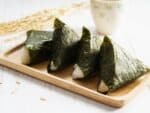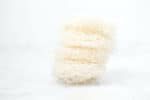Udon noodles are the perfect addition to your food cupboard. These thick wheat-flour noodles go well with all kinds of dishes such as stir-fry, ramen, and nabemono. They can even be served hot and cold, however, if you buy or make too much it begs the question, can udon noodles be frozen?
Yes, udon noodles can be frozen. You can even pick them up from the store frozen. Udon noodles are quite versatile and can be stored in the cupboard, refrigerator, or freezer.
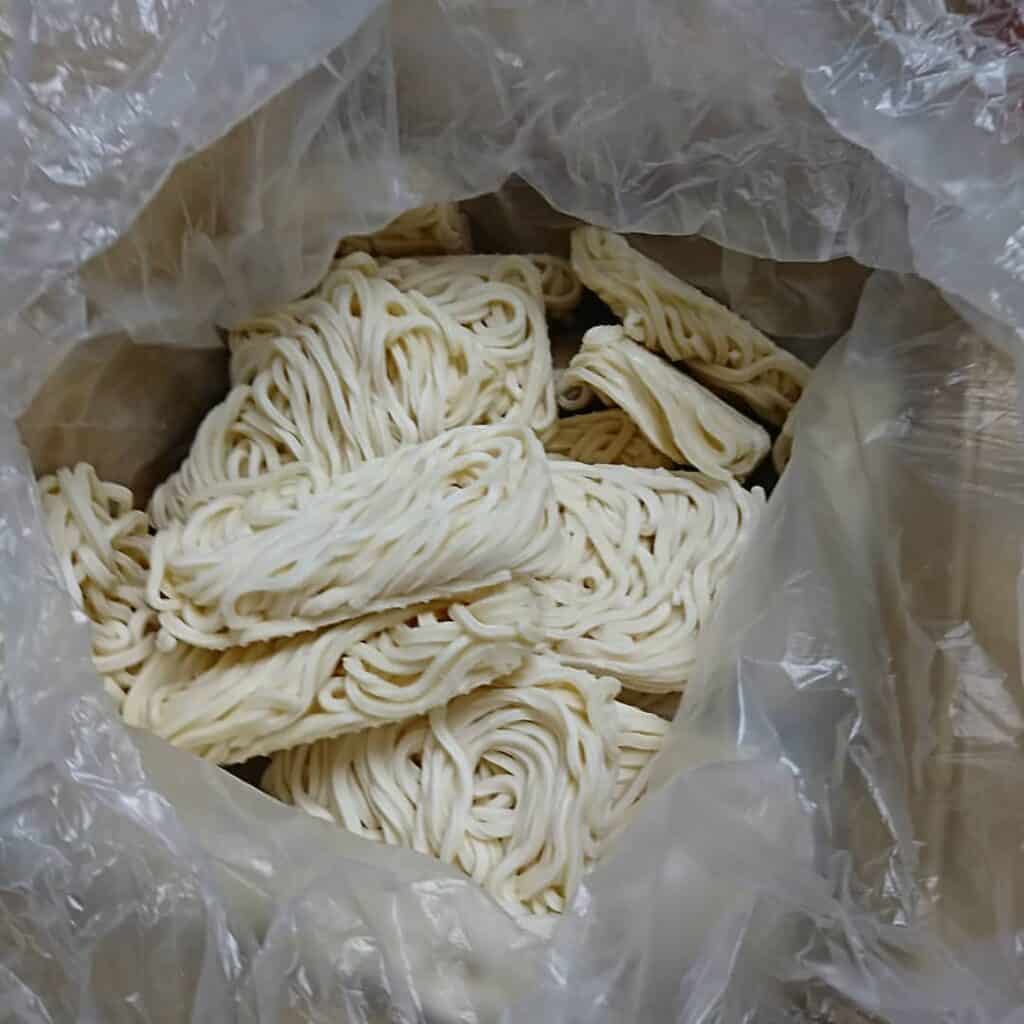

Udon noodles are usually sold in an airtight, food-safe plastic container. By sealing it this way, the freshness and flavor are preserved. If you make your udon noodles fresh then you may not have this option. If you like to make your own noodles at home, check out my guide to making home made noodles.
How To Properly Store Fresh Udon Noodles
If you have made your own udon noodles then you may be wondering how best to store them. Udon noodles will taste best when they are fresh, but if you have more than you need then they can be safely stored away.
Udon noodles are very simple to make from scratch. They can be made from just three ingredients: flour, water, and salt. As with any kind of dough, the shelf life isn’t that long.
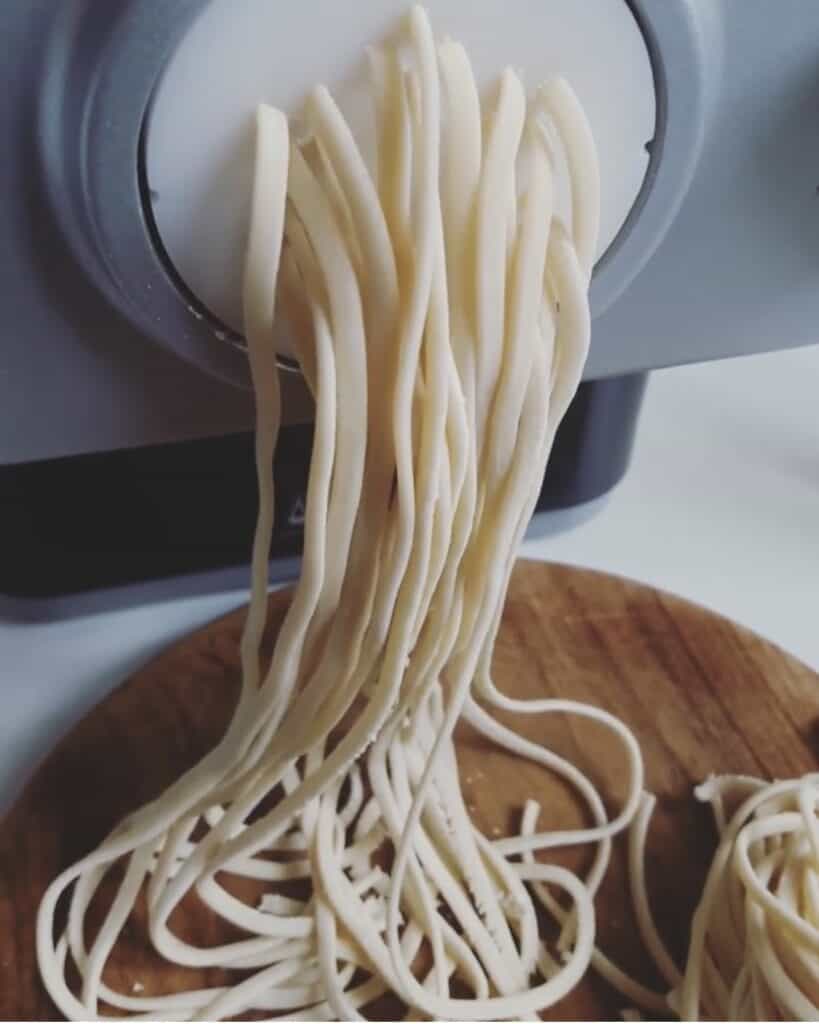
Once you have made your udon noodles you should cook all of them, as the dough won’t stay fresh for long. If you aren’t going to be eating all of your udon noodles today then you can store them in the refrigerator. They will last between 3-5 days before they start to turn.
You can freeze your udon noodles as well, that way they will last a lot longer. Freshly prepared udon noodles will last for up to a month in the freezer. Giving you ample time to plan meals they would be suited for, including my favorite yaki udon.
Freezing udon noodles is a good idea as it’s the best way to retain their moisture. It’s this moisture that gives udon noodles its chewy texture and robust size. There’s also the added benefit of how much longer they will last.
Before freezing your udon noodles you should wrap them in clingfilm. This will also aid in keeping the noodles fresh for when you are ready for them.
Looking for a refreshing summertime japanese dish? Why not try the popular Zaru udon noodles? Check out this cool Udon noodles Japanese tray on Etsy for the best presentation of your chilled udon dish, that can also be used as a serving plate.
How To Store Shop Bought Udon Noodles
Udon noodles are unlike other kinds and are usually sealed fresh rather than dried. Because of this, the shelf life of udon noodles is not as long. It’s something to be mindful of to make sure you’re not buying too much.
The vacuum-sealed plastic does a great job of preserving the freshness. However, the udon noodles can still turn quite quickly if not stored properly. There are multiple ways to store these udon noodles to suit your needs.
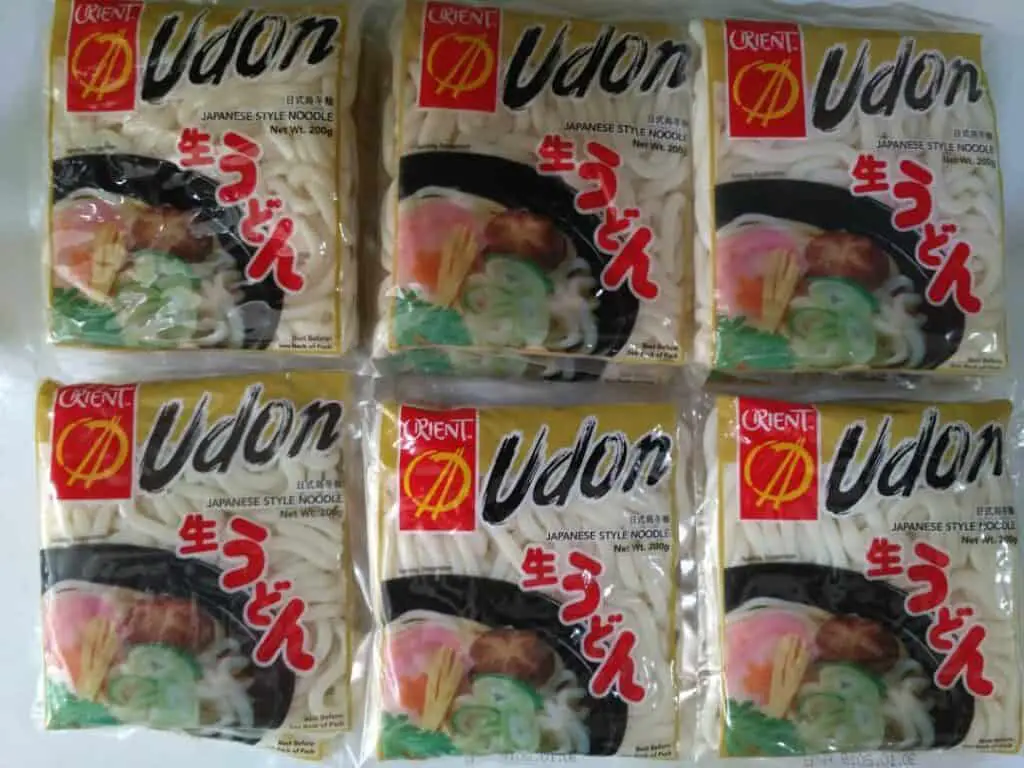
You can store shop-bought noodles in your food cupboard, providing that they came vacuum sealed. Just make sure they are away from direct sunlight. Once you have opened a packet, they will need to be cooked or else bacteria will start to grow.
They can be left in the fridge once open for up to 7 days according to the FDA. As long as the temperature of the noodles stays around 40F or 5C. Wrapping them in clingfilm and then storing them in the freezer is also an option.
You can also store them in your refrigerator in the packet until you are ready to cook. It’s up to you whether you go for a refrigerator or cupboard. I know how valuable fridge space is!
Finally, you can also store your shop-bought udon noodles in the freezer. If you do then they can be placed straight in, still in the vacuum-sealed packaging. This will increase the longevity of the noodles so they will keep longer.
You can also buy dried udon noodles which will keep for much longer in the food cupboard. However, these are usually a much smaller version of udon noodle and you sacrifice the quality. I wouldn’t recommend picking up dried udon noodles as a replacement if you want to try the authentic thing.
How To Tell If Udon Noodles Have Spoiled?
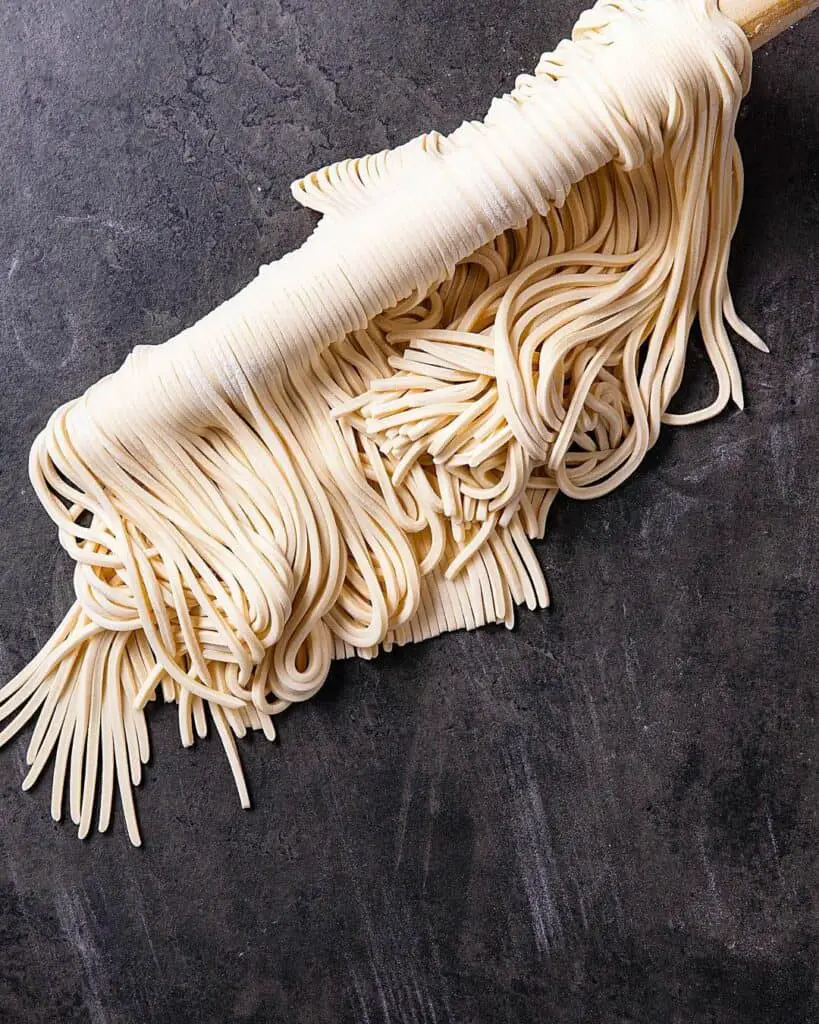
If you are unsure if your udon noodles can still be eaten there are a few things to look out for. As these noodles are either made or bought fresh they can go off quite quickly.
If your store-bought noodles are stored in the fridge or cupboard then be sure to check the packaging for any rips or tears. As a fresh product bacteria will be all over it, the first chance they get. If this happens it will be very obvious as there will be green mold growing on the noodles.
This is another reason why freezing might be the way to go, as bacteria won’t be able to grow.
Another way to tell if your noodles have turned is if there are pinkish streaks along with the noodles. Fresh udon noodles are usually quite wet to the touch due to the high moisture levels. If for any reason you believe your udon noodles are excessively slimy to touch, they may have gone off.
The smell can be a giveaway as well, as bad udon noodles will be very smelly. There will be a rather rancid odor that will make it very obvious these should not be eaten.
The shelf life of noodles in the freezer is still relatively short, especially compared to dry noodles. Something else to look out for is freezer burn. Freezer burn is the main reason why freshly cooked udon noodles can’t be left in the freezer longer.
It happens when air reaches food and causes damage by dehydration and oxidation. Unfortunately, when this happens to udon noodles it causes white, dry chunks to form all over the noodles. This renders them inedible, so if you notice this it’s time to throw the noodles away.Udon noodles are quite cheap but it’s always good to be aware of food waste. By planning ahead you will know how much to buy or make and the best way to store your noodles.











